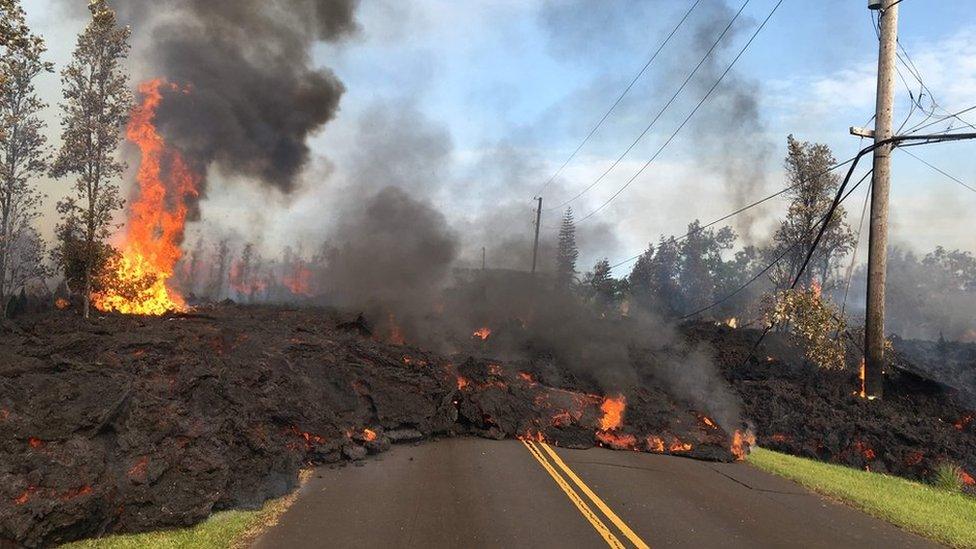Hawaii's Volcano Kilauea spews out 'ballistic blocks'
- Published
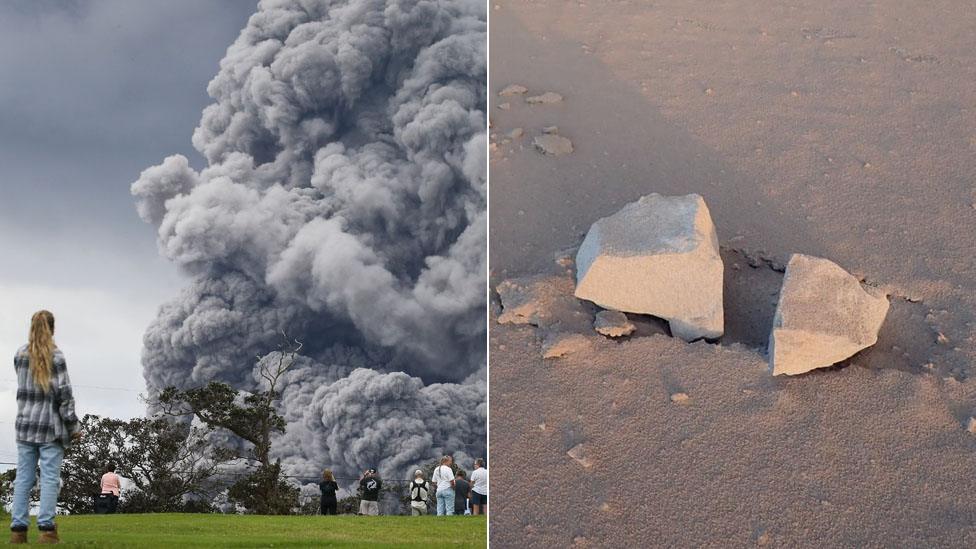
The volcano is sending "ballistic blocks" out hundreds of metres - and they could reach several tonnes in weight
A Hawaiian volcano is blasting out "ballistic blocks" the size of kitchen appliances and the authorities are warning it could get worse.
Since a new zone of Kilauea began erupting almost two weeks ago, lava has wrecked dozens of homes and forced hundreds of people to be evacuated.
An ash plume rising up to two miles (more than 3,000m) prompted officials to warn pilots to avoid the area.
Quakes as strong as magnitude 4.4 have been felt on the largest island.
The floor of the volcano's caldera (the bowl where lava erupts) is deflating, causing stress at the volcano's base.
This is causing earthquakes and new fissures to open in the ground, and creating the risk of new, highly explosive steam-powered eruptions as the magma meets underground water.
The ash plume can be seen from the International Space Station.
Allow X content?
This article contains content provided by X. We ask for your permission before anything is loaded, as they may be using cookies and other technologies. You may want to read X’s cookie policy, external and privacy policy, external before accepting. To view this content choose ‘accept and continue’.
Allow X content?
This article contains content provided by X. We ask for your permission before anything is loaded, as they may be using cookies and other technologies. You may want to read X’s cookie policy, external and privacy policy, external before accepting. To view this content choose ‘accept and continue’.
Boulders of up to 60cm (2ft) were found a few hundred yards from the crater, reported the US Geological Survey's Hawaiian Volcano Observatory.
But it warned things could get much more dangerous, external.
"During steam-driven explosions, ballistic blocks up to 2m across could be thrown in all directions to a distance of 1km (0.6 miles) or more," it said.
"These blocks could weigh a few kilograms to several tons. Smaller (pebble-size) rocks could be sent several kilometers... mostly in a downwind direction."
Lava, earthquakes and projectiles are not the islanders' only concerns:
Vog - volcanic air pollution - contains sulphur dioxide which can cause breathing problems and irritate the eyes
Ash - the area is already dusted with volcanic ash but authorities say this could get worse, posing risks to human and animal health, agriculture and power and water supplies
Disrupted transport links - a red aviation code has been issued, a warning to pilots to avoid the potentially damaging ash cloud. Hawaii is one of the world's most isolated population centres
Allow X content?
This article contains content provided by X. We ask for your permission before anything is loaded, as they may be using cookies and other technologies. You may want to read X’s cookie policy, external and privacy policy, external before accepting. To view this content choose ‘accept and continue’.
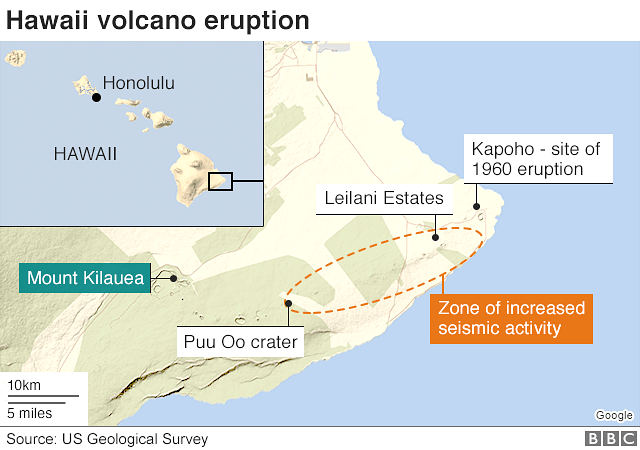
- Published14 May 2018
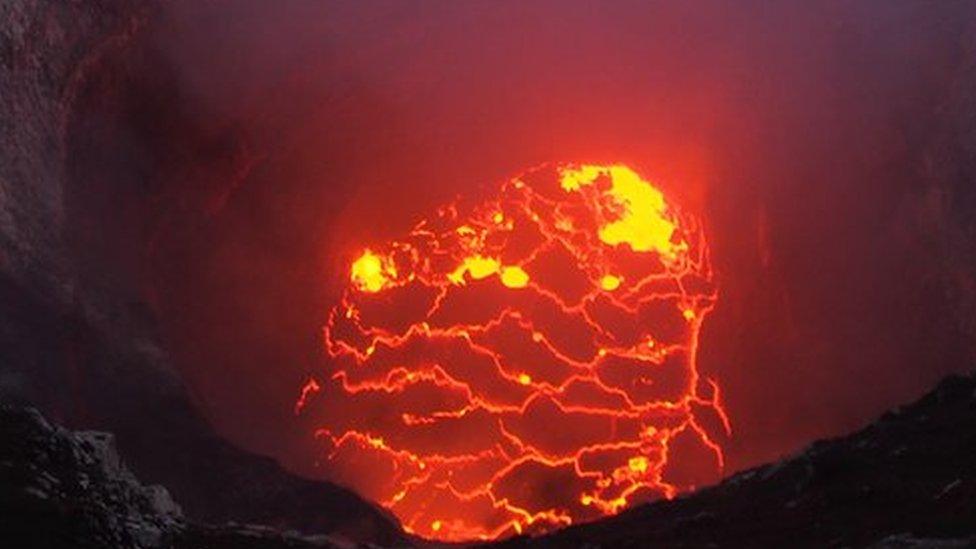
- Published10 May 2018
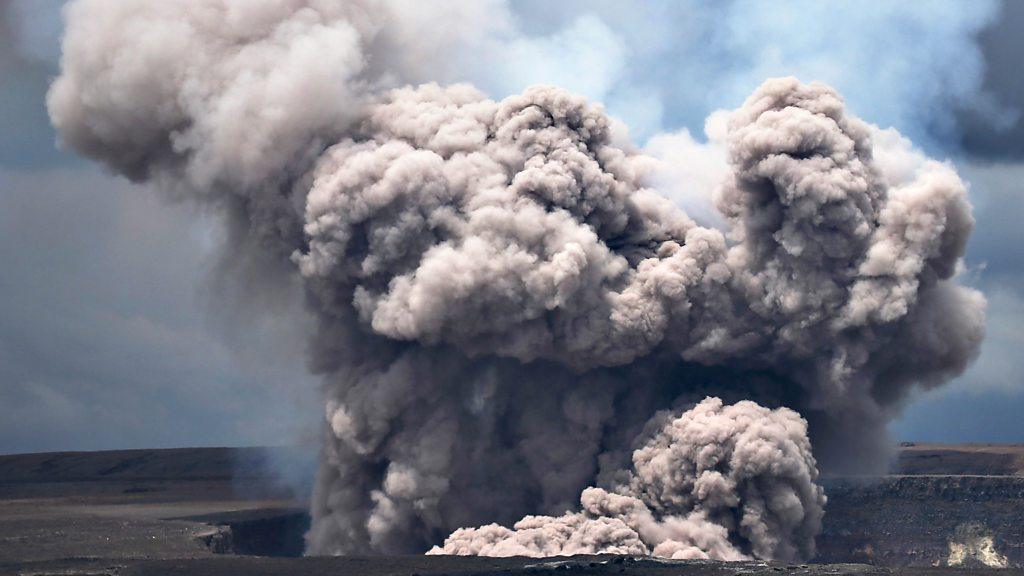
- Published4 May 2018
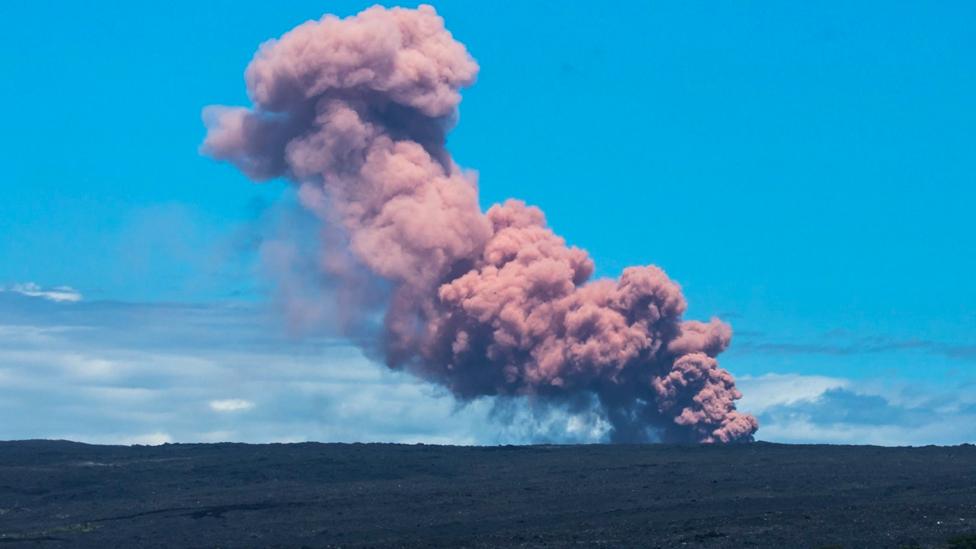
- Published7 May 2018
